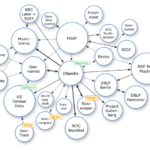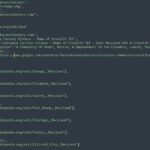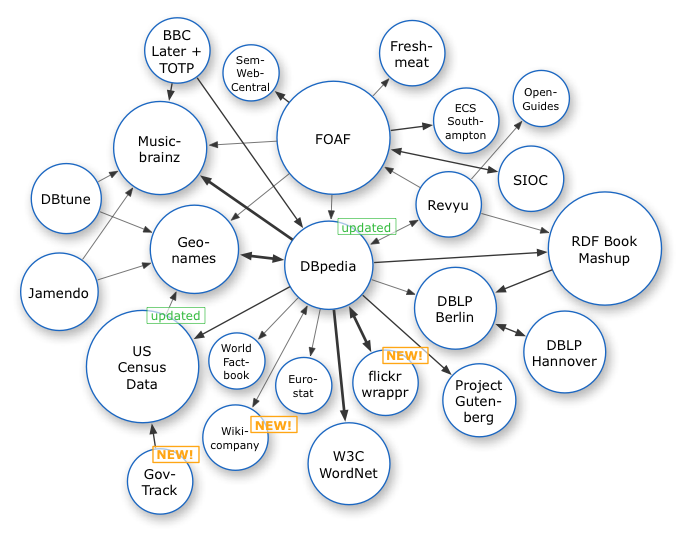Table of Contents
ToggleIn digital content creation and marketing, the concept of author authority holds significant weight in establishing credibility and trustworthiness. As search engines strive to deliver accurate and reliable information to users, the need to identify trusted authors becomes paramount.
This comprehensive guide aims to investigate deep into the intricacies of author authority, focusing on the utilization of Schema markup and bio pages to enhance the credibility of content creators. By understanding the nuances of author authority and implementing strategic approaches such as Schema markup and bio pages, content publishers can bolster their online reputation and solidify their position as trusted experts in their respective fields.
Developing a robust Expertise, Authoritativeness, and Trustworthiness (E-A-T) strategy is essential for content creators looking to establish long-term credibility and authority in their niche. By leveraging Schema markup to attribute authorship to on-topic authoritative writers, websites can enhance the value of their content and build a foundation of trust with their audience. Additionally, the utilization of bio pages provides readers with valuable insights into the background and expertise of the authors, further strengthening their credibility and influence in the online space. As search engines increasingly prioritize authoritative sources, mastering the art of author authority through Schema and bio pages is essential for staying ahead in the digital landscape.
Key Takeaways:
- Author Authority: Author Authority plays a crucial role in establishing trust and credibility for content creators. It is essential for authors to demonstrate expertise, authoritativeness, and trustworthiness (E-A-T) to build their authority.
- Schema Markup: Implementing Author Schema and Bio Pages with proper schema markup can enhance visibility and recognition for authors on search engines. It helps in attributing authorship and providing transparency to readers and search engines.
- Search Engine Preference: Search engines prioritize content from trusted authors and authoritative sources. Declaring authorship, establishing credibility, and building author profiles can improve content visibility and enhance author authority in search results.
Understanding Author Schema
What is Author Schema?
The concept of Author Schema is a structured data markup that allows content creators to specify the authorship of a web page. It provides search engines with information about the author, including their name, bio, photo, and links to other works. Author Schema helps search engines understand the credibility and expertise of the author, ultimately boosting the author’s authority in search results.
By implementing Author Schema, content publishers can establish a clear connection between the author and their content, enhancing transparency and trustworthiness. This structured data markup plays a crucial role in establishing author authority and building credibility in the digital space.
How Author Schema Benefits SEO
The utilization of Author Schema in SEO practices can have a significant impact on search engine rankings. By providing search engines with specific author information through structured data markup, websites can improve their visibility and credibility in search results. Author Schema helps search engines recognize authoritative content creators, leading to higher rankings for relevant search queries.
With the implementation of Author Schema, websites can enhance their click-through rates and establish a strong authorship presence online. This structured data markup not only benefits SEO efforts but also improves the overall user experience by offering transparent information about the creators behind the content.
Implementing Author Schema on Your Website
Schema.org provides detailed guidelines on how to implement Author Schema on your website effectively. By including the necessary markup in your HTML code, you can ensure that search engines properly recognize and display author information in search results. This step is crucial for enhancing author authority and improving the visibility of your content online.
Author Schema implementation requires attention to detail and adherence to schema guidelines. By following best practices and regularly updating author information, websites can establish a strong authorship presence that resonates with both search engines and users. Incorporating Author Schema into your SEO strategy is a valuable way to showcase author expertise and build trust with your audience.
Creating Effective Bio Pages
The Role of Bio Pages in Establishing Authority
Establishing author authority is crucial in the digital realm, and bio pages play a significant role in this process. Bio pages provide a platform for authors to showcase their expertise, experience, and credibility in a concise and compelling manner. By including relevant information about the author’s background, qualifications, and areas of expertise, bio pages help readers understand the author’s perspective and establish trust.
Additionally, bio pages serve as a valuable tool for search engines to identify and attribute content to specific authors. When bio pages are optimized with structured data such as author schema markup, search engines can more accurately associate content with authoritative authors, enhancing the overall credibility and visibility of the content.
Key Elements of a Persuasive Bio Page
Role In order to create a persuasive bio page that effectively builds author authority, several key elements should be included. A professional headshot helps personalize the author and creates a visual connection with the audience. A concise yet informative biography highlighting the author’s expertise, accomplishments, and unique selling points is essential to establish credibility and trust.
To Furthermore, including links to relevant social media profiles, publications, and endorsements can further enhance the author’s authority and credibility. By incorporating testimonials, awards, and speaking engagements, bio pages can reinforce the author’s expertise and distinguish them as a trusted source in their field, contributing to a comprehensive author authority strategy.
Enhancing E-A-T with Author Credentials
Your credibility as an author plays a significant role in enhancing the Expertise, Authoritativeness, and Trustworthiness (E-A-T) of your content. By establishing your credentials clearly, you can build trust with your audience and search engines, ultimately boosting the authority of your work.
Explaining Expertise, Authoritativeness, and Trustworthiness
Author E-A-T is crucial for demonstrating your expertise in a particular field, showcasing your authority on the subject matter, and building trust with your readers. Search engines like Google prioritize content from authors who have a proven track record of knowledge and credibility, as it contributes to a more reliable and informative online ecosystem.
When you establish yourself as an authoritative author by highlighting your expertise through well-researched and accurate content, you not only enhance your own reputation but also contribute to the overall credibility of the information available online. By consistently showcasing your E-A-T, you can solidify your position as a trusted source of valuable insights within your industry.
How-to Showcase Your E-A-T through Content
Credentials are a vital component of showcasing your E-A-T through content. By including information about your relevant qualifications, professional experience, and achievements in your author bio or schema markup, you provide readers and search engines with tangible proof of your expertise and authority on the topic. This transparency helps build trust and credibility with your audience, leading to increased recognition and visibility for your work.
Building a Personal Brand Panel
Despite the evolving landscape of content creation, establishing a personal brand panel remains a crucial step in enhancing author authority. A personal brand panel serves as a digital representation of an author’s expertise, credibility, and trustworthiness in their field.
By strategically building a personal brand panel, authors can set themselves apart as thought leaders, gaining recognition for their contributions and establishing a loyal following. This not only adds a layer of transparency for readers but also paves the way for greater visibility and influence in the digital space.
Steps to Establish a Personal Brand Panel
Establishing a personal brand panel begins with defining your unique value proposition and identifying your target audience. By clearly articulating your expertise and the specific topics you plan to cover, you can tailor your content and branding efforts to resonate with your audience.
Next, create a professional bio that highlights your accomplishments, credentials, and areas of expertise. This bio will serve as the foundation of your personal brand panel, providing readers with a comprehensive overview of your background and qualifications as an author.
Leveraging a Personal Brand for Author Authority
By consistently delivering high-quality content that reflects your expertise and values, you can build a loyal following of readers who view you as a reputable source of information in your field.
Sentiment and its Influence on Author Authority
To truly understand the concept of author authority, one must also consider the impact of sentiment analysis on how authors are perceived in the digital realm. Sentiment analysis plays a crucial role in determining the reception and credibility of authors, ultimately influencing their authority within a particular subject area.
Understanding Sentiment Analysis
Analysis of sentiment involves examining the tone, emotions, and attitudes expressed within content to gauge the overall perspective and reception. In the context of author authority, sentiment analysis can reveal how a reader perceives the content and the author, shedding light on the level of trust and credibility attributed to them.
On the flip side, positive sentiment towards an author can significantly boost their authority within a given field. When readers respond favorably to an author’s work, it not only indicates their expertise but also builds a sense of trust and reliability. Authors who consistently garner positive sentiment are more likely to be recognized as authorities in their respective niches, further solidifying their reputation in the digital landscape.
With sentiment analysis becoming increasingly vital in evaluating author authority, understanding the impact of positive sentiment on audience perception is crucial. By cultivating a positive rapport with readers and consistently delivering valuable content, authors can enhance their authority and credibility, establishing themselves as trusted sources of information within their domain.
Transparency and Trust in Authorship
The Link Between Transparency and Reader Trust
Trust is a foundational element of establishing author authority. When readers are aware of who the author of a piece is, they are more likely to trust the content they are consuming. Transparency in authorship creates a sense of accountability and reliability, leading to a stronger connection between the writer and the audience.
By clearly attributing content to specific authors through author schema and bio pages, you are not only providing valuable information to search engines but also building a relationship of trust with your readers. This transparency showcases your commitment to authenticity and expertise, enhancing the credibility of your content.
Tips for Maintaining Transparency
With author schema and bio pages in place, it’s essential to ensure that your author information is consistent and up-to-date across all channels. This includes verifying author credentials and highlighting relevant expertise to reinforce trustworthiness. Additionally, regularly publishing content under the same author name helps in establishing a recognizable brand identity.
- Ensure author profiles are complete and include relevant credentials
- Regularly update author information to reflect current expertise and experience
Assume that readers are actively seeking content from trustworthy sources, and by maintaining transparency in authorship, you are not only meeting their expectations but also building a loyal readership base.
Factors Affecting Author Authority Rankings
Unlike general content ranking, author authority is determined by a unique set of factors that establish credibility and expertise. Here are some key factors that can influence author authority rankings:
- Content relevance and quality
- Author’s expertise and experience
- Consistency in producing valuable content
- Credibility of sources and references
- User engagement metrics such as shares, comments, and backlinks
Knowing how these factors contribute to author authority can help content creators tailor their strategies to enhance their credibility and visibility in search engine results.
Google’s Approach to Author Authority
The concept of author authority aligns with Google’s quest to deliver reliable and trustworthy information to its users. By emphasizing author expertise, Google aims to prioritize content from credible sources and establish a reputation system based on individual author contributions.
The search engine giant values transparency and authenticity, encouraging authors to build a strong online presence and establish their expertise in specific niches to enhance author authority rankings.
Understanding Google’s Patents on Author Recognition
One of Google’s core goals is to accurately attribute content to its respective authors and reward those who exhibit expertise and credibility in their fields. Through patents related to author recognition, Google aims to develop algorithms that can assess author reputation and impact on content quality.
Any advancements in author recognition technology are designed to improve search results accuracy and provide users with content that is not only relevant but also trustworthy.
Tips to Enhance Your Ranking Factors
On top of producing high-quality content, authors can take additional steps to boost their author authority rankings. By focusing on building a strong personal brand, engaging with their audience, and collaborating with reputable websites, authors can solidify their position as industry experts.
- Utilize Schema markup to highlight author credentials
- Engage with readers through social media and networking
- Collaborate with other authoritative authors and publications
Factors such as user trust and engagement play a significant role in determining an author’s authority, making it essential for authors to cultivate a strong online presence and demonstrate their expertise consistently.
Strategic Content Creation and Author Attribution
For content creators looking to establish author authority, developing a strategic content creation plan is crucial. By focusing on creating authoritative and trustworthy content, authors can build their reputation and expertise in their respective fields. One way to achieve this is by consistently producing high-quality, well-researched content that provides value to readers.
One key aspect of developing a content strategy for authoritative writing is to focus on expertise, authority, and trustworthiness (E-A-T). By demonstrating expertise in a particular subject, establishing authority through verifiable credentials or experience, and cultivating trust with readers through transparent and accurate information, authors can enhance their authoritativeness and build a strong online presence.
Developing a Content Strategy for Authoritative Writing
One fundamental aspect of building author authority is to have a clear content strategy in place. This involves identifying the target audience, understanding their needs and preferences, and creating content that addresses relevant topics in a comprehensive and engaging manner. By consistently delivering valuable and informative content, authors can attract a loyal readership and establish themselves as trusted authorities in their field.
How-to Attribute Content Correctly for Maximum Impact
An important aspect of building author authority is correctly attributing content to the respective authors. By utilizing author schema markup and bio pages, authors can provide readers and search engines with information about the creators of the content. This not only enhances transparency and credibility but also helps search engines identify authoritative sources of information. By correctly attributing content, authors can maximize the impact of their work and enhance their online visibility.
Tools and Resources to Build and Measure Author Authority
SEO and Authorship Tools Overview
Tools play a vital role in building and measuring author authority. As an author, utilizing SEO tools can provide valuable insights into keyword optimization, content performance, and competitor analysis. These tools can help you identify opportunities to improve your content and increase your visibility in search engine results. Furthermore, authorship tools, such as Author Schema markup and bio pages, can enhance your online presence and credibility by providing clear attribution of your work.
By leveraging SEO and authorship tools effectively, authors can strengthen their authority in their respective fields and establish themselves as trusted sources of information. These tools not only streamline the process of optimizing content for search engines but also showcase the expertise and credibility of the author, ultimately boosting their online reputation.
Measuring the Impact of Author Authority Strategies
Measuring the impact of author authority strategies is crucial for assessing the effectiveness of your efforts in building credibility and influence as an author. Through metrics such as search engine rankings, organic traffic, social media engagement, and backlinks, authors can track the success of their authorship initiatives. By monitoring these key performance indicators, authors can identify areas for improvement and refine their strategies to enhance their author authority further.
Strategies for measuring the impact of author authority focus on data-driven insights that reflect the author’s influence and expertise in their niche. By analyzing the engagement and visibility of their content across various online platforms, authors can gain valuable feedback on the effectiveness of their authorship strategies and make informed decisions to strengthen their authority in the digital landscape.
Summing up
With this in mind, understanding and implementing Author Schema and Bio Pages are crucial steps in building author authority in the digital age. By establishing a clear E-A-T strategy and showcasing expertise, transparency, and trustworthiness, authors can solidify their credibility and influence in their respective fields. Author Authority plays a significant role in content ranking and user trust, making it essential for content creators to focus on author attribution.
Google’s emphasis on author transparency and reputation underscores the importance of accurately attributing content to trusted authors. Incorporating Author Schema markup and developing robust bio pages not only enhances search engine visibility but also instills confidence in readers regarding the authenticity and reliability of the information provided. As search engines continue to prioritize authoritative sources, investing in author authority-building strategies is a smart move for content publishers looking to establish themselves as reputable voices in their industries.












